Prosenjit Chatterjee & Rituparna Sengupta on their 50th film Ajogyo

Prosenjit Chatterjee & Rituparna Sengupta on their 50th film Ajogyo
[ad_1]
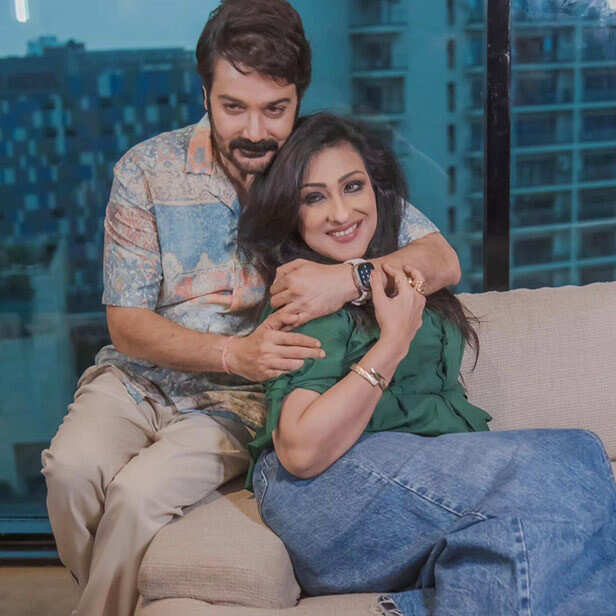
How much pressure do you feel being hailed as the NEW Uttam-Suchitra of Bengali cinema?
Rituparna Sengupta: They are the gods of Bengali cinema, and we worship them. Whenever it’s said that we are the next names after them, I feel very proud. I think that we have done a great job, but at the same time, I feel they are legends. We cannot touch them. But being compared gives us validation that maybe everybody loves us so much that they are making this comparison. Prosenjit Chatterjee: First of all, Uttam and Suchitra are legends and they are like our masters. The audience sometimes compares us because Ritu and I have done a lot of work and people have loved us for years. But we’re not even close to what Uttam Kumar and Suchitra Sen were.
Ajogyo is the 50th film where you both will be seen together…
Prosenjit: It’s been a long journey with many ups and downs. Our commercial films have worked well and our friendship and bonding as actors have translated on screen. We started getting to know each other better, and there was a time when we didn’t work together for around 14 years. This chemistry is hard to describe because I believe it has been created and accepted by the audiences and the filmmakers who had faith in us. We have also evolved as actors. We are no longer the hero and heroine we used to be. But when we come onscreen with a certain aura or maturity, thanks to our director and writer, the audience likes it and wants to see us together. Our friendship, bonding, and professionalism are very high. We are very good friends, there’s no doubt about it.
Rituparna: I don’t know if we are friends or not, but there is a certain energy that works when we come on screen. That energy is infectious and hard to describe—it just happens. There’s magic. The beauty of our bond and pair lies in our professionalism, and of course, we respect each other a lot.
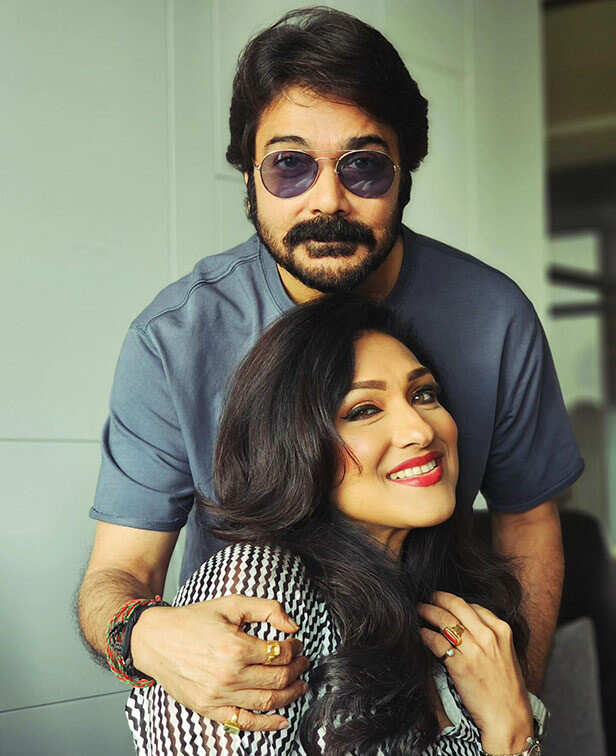
How relatable did you find your character in Ajogyo to your real selves?
Prosenjit: In one way, I can tell you that we can’t define love, right? Everybody has tried, but can you define love? It’s very difficult. My character defines love differently, which relates to me because I strongly believe that love is something you can’t define. It changes with time.
Rituparna: I must say everybody can identify with the characters because there’s a bit of everyone in them. As a middle-class lady who is fatigued and also a working woman, I think many women can relate to her. The film has many layers, full of surprises, drama, and interesting relationship situations.
Rituparna, what’s your take on modern-day relationships?
Rituparna: They are getting more complicated, with grey areas becoming greyer. There are instances where people can’t find a way out. I believe Ajogyo will provide new insights into relationships. It will offer a deep look into people’s minds and relationship issues. The tendency now is to abandon relationships and part ways, which is easy. But staying in the relationship, facing challenges daily, and making amendments is what keeps it going.
Ajogyo is your second film with director Kaushik Ganguly. You have worked together in Drishtikone (2018) as well. What do you admire about his vision of storytelling?
Prosenjit: Kaushik Ganguly is one of the finest storytellers today. He tells his stories in a way that caters to the ordinary emotions of people. He understands middle-class emotions. As a fine actor himself, he helps a lot as a director. When I do films with Kaushik, once the script is done, I get into my character, but as a director, he guides me, and I become a student. He is very calm.
Rituparna: I agree. He’s a fantastic storyteller and understands relationships. He has an intricate mastery of the toughest and most sensitive relationship issues, with underlined and nuanced matters where you can see yourself. He is one of a kind in our country right now.
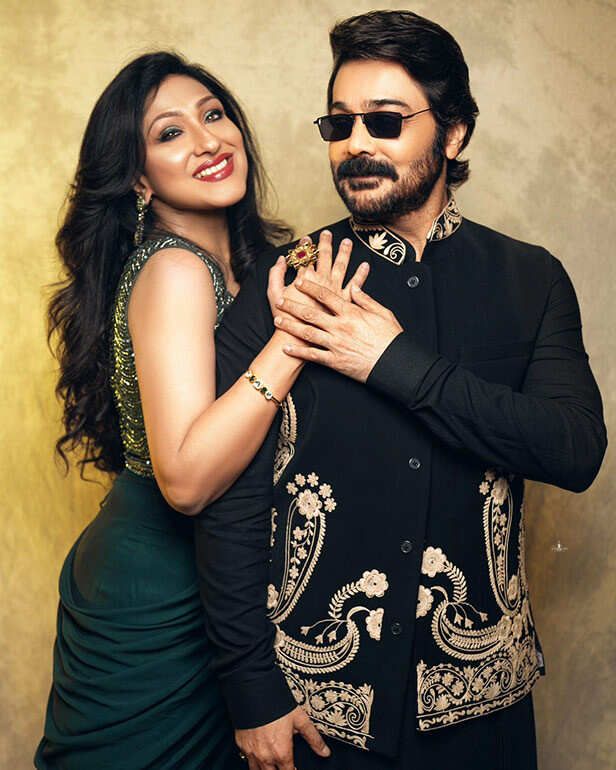
Praktan (2016) was a much talked about film which saw you both coming together after a long time. What led to this gap?
Rituparna: I didn’t take a break from movies, but I took a break from films with him. I grew within my films, exploring different kinds and carving a niche for myself. The audiences have accepted us beautifully in our respective ways. Destiny brought us together again, and I always wanted Shiboprosad Mukherjee to direct our reunion.
Prosenjit: Before Praktan, we hadn’t worked together for about 14 years, which was a conscious decision and a blessing. There was a universal power that brought us back. After 14 years, the magic was still there in Praktan because of our long-standing pairing. Now, we’ve decided to come together onscreen every two and a half to three years. The audience’s love has been constant, be it Praktan, Drishtikone, or now Ajogyo.
How do you two complete each other as actors on the big screen?
Prosenjit: In our first film, she was a newcomer and I was already a big star. The aim was to make her comfortable. Over time, I saw her maturity, passion, and love for her craft. She started with commercial cinema, then balanced mainstream and won National Awards. She immerses herself completely into her character, which I appreciate.
Has Rituparna said anything that truly touched your heart?
Prosenjit: She tells me I taught her a lot as a newcomer. Today, actors have professional support—PRs, managers, etc. But back in the day, we didn’t have such guidance. I had done a lot of work by then, so I used to advise her on handling media and managing her schedule. Our bond has evolved over time.
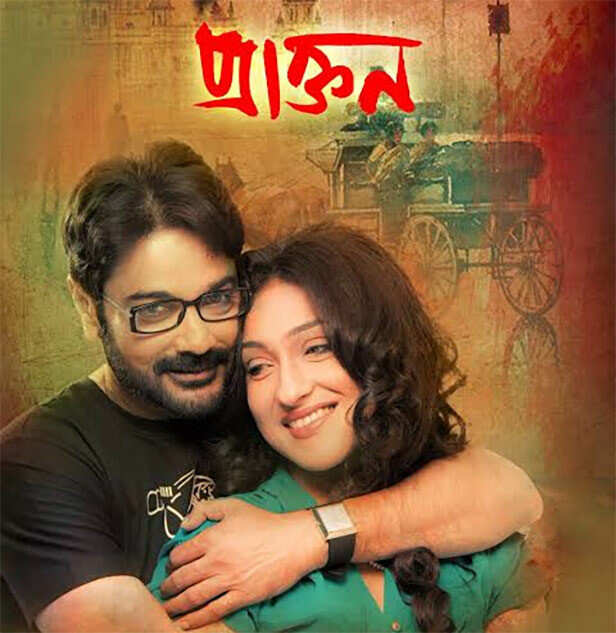
What about you, Rituparna? What qualities in him do you admire the most?
Rituparna: He has tremendous capabilities. He can think very deeply and focus solely on his career, which is a huge gift. I have to balance my mind on many things—family, career, and more. He can strategize better than I can. I’m more emotional.
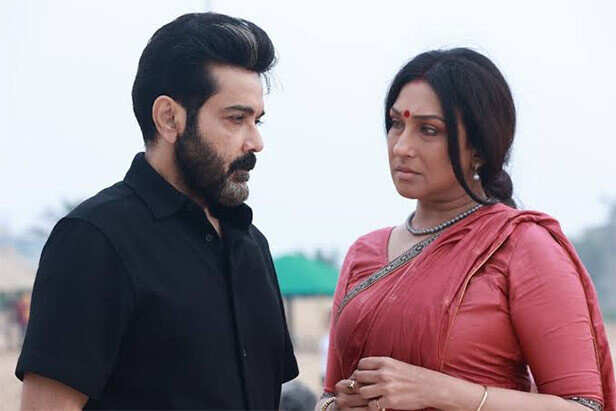
Prosenjit, with Jubilee and Scoop—your Hindi projects doing well—does it become stressful to deliver bigger and better?
Prosenjit: The pressure is for people to love my work. People know me in Mumbai, but after watching Jubilee and Scoop, especially Jubilee, they wonder why I’m not there more often. The pressure is about what’s next. My pressure is when I do a Shesh Pata, what do I do next? Even if a film does well at the box office, I want my passion to remain, even if it’s a small character, so people talk about it. I’ve felt this for 30 years, but now, I simply want to enjoy my work.
[ad_2]




